"There are about 80 million Catholics in the United States, which is 22% of the population, but at the same time, it is 28% of Congress and the Senate."
Your Excellency, I welcome you. I am very glad that we have met. We saw each other at a prayer breakfast two weeks ago in Kyiv and agreed to have this conversation, because you do not visit Ukraine often. I know that you have a busy schedule. You said that, unfortunately, the main topic of this visit was the war. I would like to start with that.
This time I travelled from Poland by train: from Lviv to Kharkiv, then to Poltava, through Kyiv to the prayer breakfast, and then on to Odesa, Pivdenne, back to Lviv, and now to Kyiv.
In America, we focus on three types of activities in response to the war.
The first is prayer. We pray constantly: in church every day, on the road, in cars. For the defenders, the fallen, the innocently killed, the medics, the repairmen, the journalists who gave their lives to convey the truth. We pray for our homeland, asking the Lord to drive out the attackers.
The second is information. I try to explain to American society, especially Christians, what is happening in Ukraine. There are about 80 million Catholics in the United States, which is 22% of the population, but at the same time, it is 28% of Congress and the Senate. Two-thirds of the Supreme Court are Catholics. The previous president was Catholic, as is the current vice president. This is an influential group, and it is important that they understand correctly what is happening.
Thirdly, humanitarian aid. Our modest fund has already donated $10 million to more than 200 projects across Ukraine. I try to visit them personally, which allows me to report to donors and say that we didn't just "help somewhere out there," but "I saw this family receive support, windows were repaired here, soldiers were helped there."
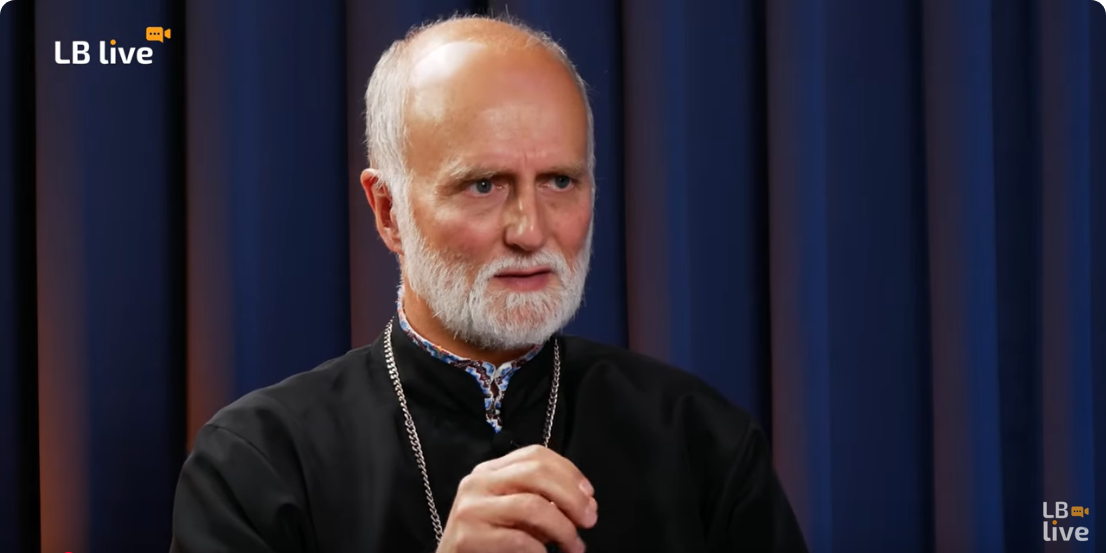
Each such trip, apart from other issues, primarily concerns the war. We bear witness.
Before moving on to the next topic, I would like to ask: you have made 14 trips since the start of the full-scale invasion, so you can compare the moods. Where do you think Ukrainian society is now? In Ukraine, we often talk about fatigue — physical, emotional, the exhaustion of those who are fighting and those who are behind the lines.
In many matters of war, hasty generalisations are not very reliable. For example, before the war, it was estimated that it would last three days, three weeks, three months. Few could have imagined that so many people would volunteer for the Armed Forces, that such solidarity would occur between Ukrainian and Russian speakers.
The reactions of the outside world were also impossible to predict. In 2022 and 2023, no country was ever talked about as much as Ukraine. From what I've seen, people talked about it positively, with respect and admiration. That admiration hasn't gone away, even though there are lots of other conflicts going on in the world. Do we even remember this? What is happening in Sudan? Do we know about the drug wars in Mexico, which have claimed many more victims than the war in Ukraine from 2014 to 2022? Man is sinful and capable of turning a beautiful world into hell.
At the same time, in the context of the war, the international community has gained a greater awareness of who we are, where we are, and who Ukrainians are. Much of the credit for this goes to the army and the solidarity of the Ukrainian people, which was followed by the government. President Zelenskyy was the most respected politician in the world in 2022–2023 because he represented Ukrainians. Each such trip, apart from other issues, primarily concerns the war.
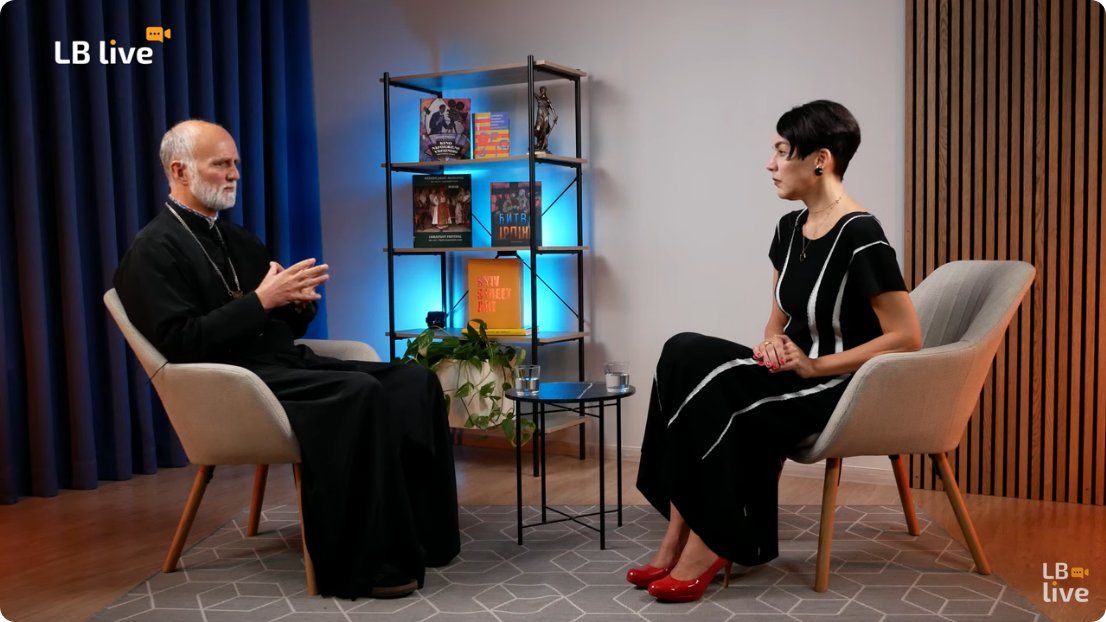
Today, we are experiencing a turbulent political situation. I see society's fatigue. I have visited many cemeteries in different regions, talked to the families of the fallen, soldiers, and veterans. We had the 40th day of remembrance for Yaroslav Ruschyshyn, a remarkable figure who will be revealed over time. We also commemorated the first anniversary of the death of the Bazylevych family.
There is memorialisation. From a practical, educational and historical point of view, these cemeteries will speak to future generations for a long time to come. Even in the worst-case scenarios, sacrifice and unity, which were not previously recorded or recognised, now matter.
The most moving thing for me was the last nine days during Andriy Parubiy's funeral. His wife shared some really deep and noble feelings: she forgives the killer, keeps her heart pure, following Andriy's advice: "Don't let darkness into your heart."
Let us learn from his wife's example: the aggressor is the devil, the enemy of the human race, and he works systematically. But it is important to remain calm and think clearly. Negative emotions fade sooner or later, and steadfastness is God's support.
People who have experienced loss retain the ability to act constructively. I see this in Ukraine: creativity, calm thinking, effective decisions. I would like to see this example spread at all levels.
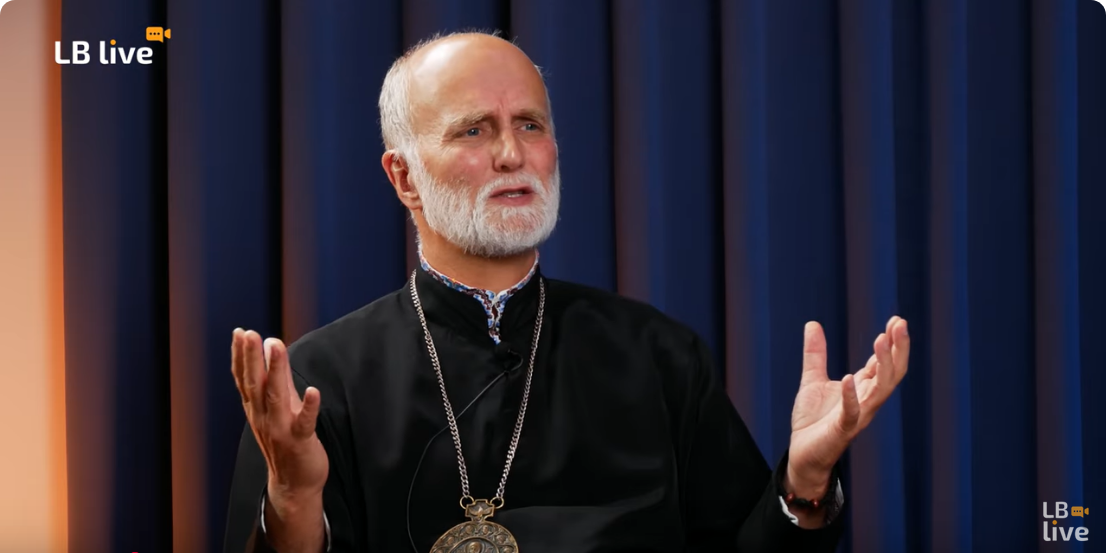
"Anyone can study at UCU, but they are expected to respect the values of the university."
Regarding students and the Ukrainian Catholic University: a few days before our meeting, a scandal broke out that was widely discussed. I knew that we already had an agreement about the interview, so I was waiting for your position: what do you have to say about it? I will not comment on all aspects — obviously, there are many: educational, ethical, religious. It can be viewed from any angle.
I would direct all listeners or observers to look closely at the rector's response. It was not spontaneous, perhaps too slow. And the rector's office apologises for the communication inefficiency. Attention is being paid to this unfortunate case because a young person was hurt or offended, at least with such feelings.
Those who enrol at UCU achieve the highest NMT (National Multi-subject Test) results in the whole country. Why? Because students want to come here. The university creates an atmosphere that supports people and gives them a real opportunity to learn. Here, attention is paid to each individual, whoever they may be.
Anyone who passes the state exams can study here, but students and staff are expected to respect the values of the university and not go against the principles of a Catholic institution.
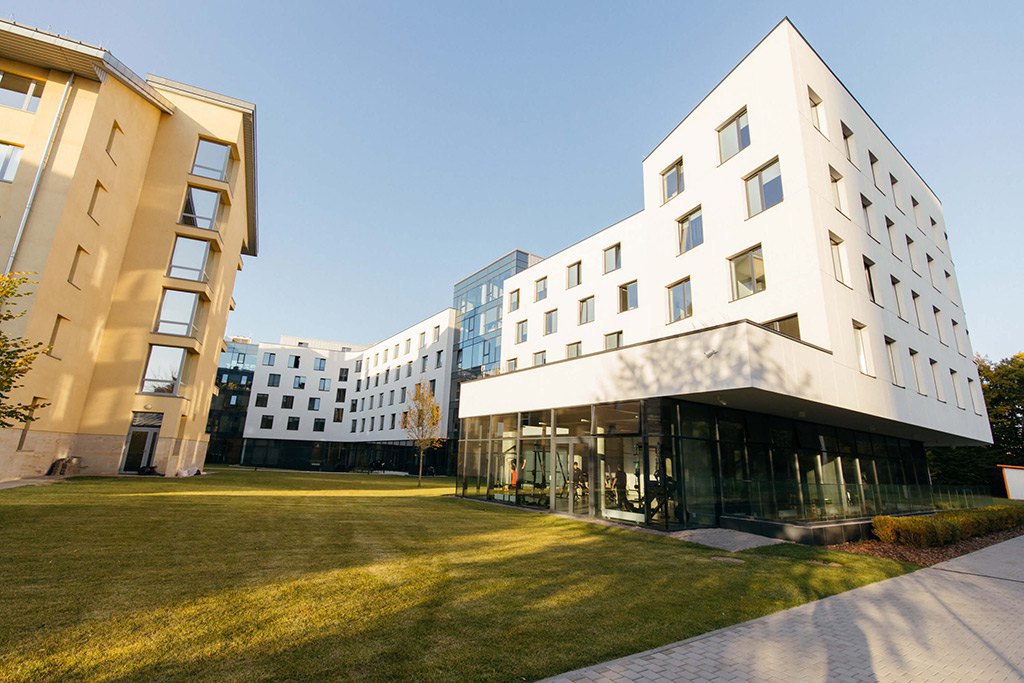
Is it right to equate the position of the Ukrainian Greek Catholic Church with that of the university?
They should be in harmony. Because we should all be in harmony with the Gospel.
Listen, not all people are believers, and that's okay. I didn't ask about the UGCC and the UCU for no reason. There are different approaches in both places: a more liberal branch, to which you are often attributed, and a more conservative one. They exist in parallel, but often confront each other, sometimes publicly.
I believe that the categories "liberal" and "conservative" are superficial and simplistic. I am glad that in my life I have had experience on both sides. I don't think I am a liberal or a conservative — I follow Christ. Paul says that there are no Peter followers and Paul followers — we must live in Christ. It's a delicate matter. I can tell you that I often fail at this, and so I go to confession and repent every day.
I don't know if you will find a similar context in Ukraine: educational, cultural, political, social — one that is more open than UCU. One that accepts people with love, tenderness, not formally. Young people want to be there.
Is everything perfect? No, there are sinners like me, and we stand before the Lord in repentance. I suggest that students learn two words during their studies: "thank you" and "sorry." If we carry these words with us, many things in life will fall into place. And not only in this life, because it is a threshold to eternity. We look at death from the perspective of eternity and at life from the perspective of death. Our view of life depends on our view of death.
Since the early 2000s, when I became rector, I have always emphasised at my first meeting with applicants that studying at UCU should prepare you for death. We study and prepare for things we have not yet encountered, but death will always be there. At first, this shocked many people.
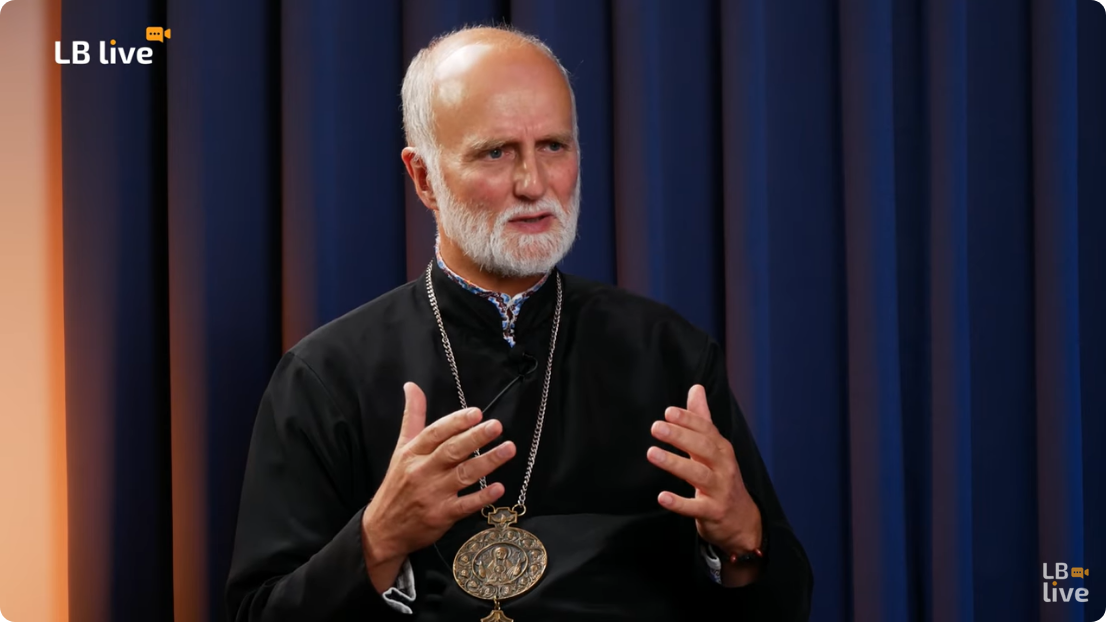
I can imagine.
But you know, it has always been part of Christian tradition — praying for a good death: monks kept a skull or a coffin in their room.
The same symbol of faith.
And a symbol of faith. This is realism. But today's progressivism says: children should not be shown death, we should not take them to funerals, because it traumatises them.
But young people experience death, are ready for discussion, prayer, solidarity. We will not let despair settle in our hearts, and we will see the blessings that God gives.
In Ukraine, students study, people love, children are born. There are funerals — people cry, but they keep fighting.
"I would like the Church to be treated with tolerance, not censorship."
Let me put it in secular terms, because, again, not all of our audience are believers. Most are not, and it is important for me to communicate equally to everyone.
The question is simple: society is changing very dynamically, should the Church change?
Let me give you an example. In 2021, Pope Francis initiated a synodal path to reform the Church. During a meeting in Germany, documents were adopted that proposed to stop considering homosexuality a grave sin. A year later, an unprecedented collective coming out took place: 125 representatives of the Catholic Church publicly announced their membership in the LGBT community and demanded changes in church labour law.
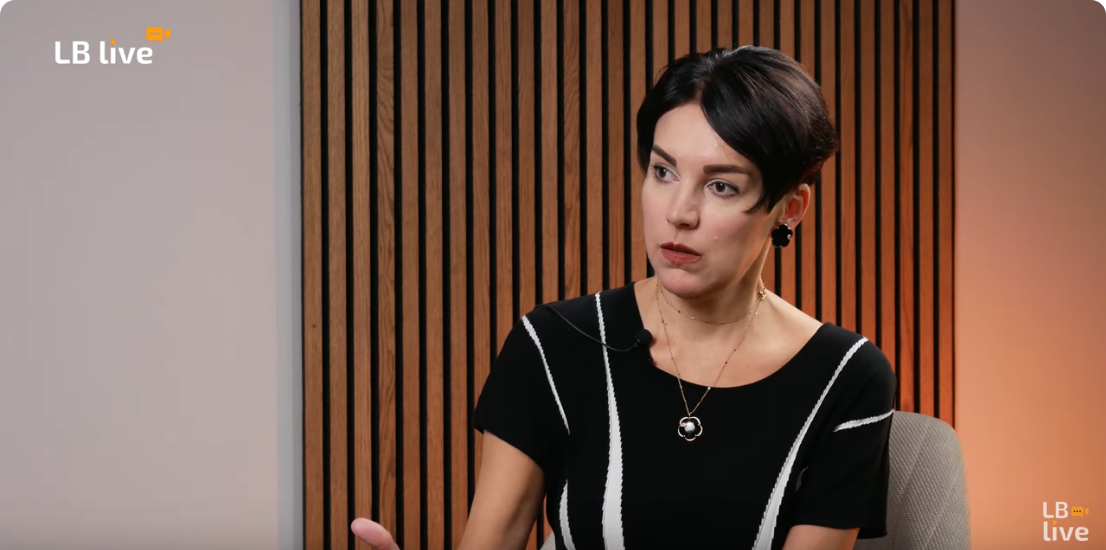
It is evident that the church is changing.
Paul and the Apostle Peter did not live as we live today. Yesterday's catacomb Greek Catholics served the liturgy in kitchens and rooms behind closed windows. But God's word does not change. It can be interpreted, but can black be made white and white be made black? Can it be completely rewritten? There are discussions about this, and we will see the result in decades.
The Church has always maintained that there are truths that must be defined. There are battles over them, but they must not change.
Pope Francis, whom you quote, was very critical of gender ideology — sharply and categorically, even before he became pope. But many look at him and say, "This man Francis is a liberal." Is that so? I believe that his actions are deeply evangelical: humane, compassionate, but he calls us to the depths of spiritual life.
Look at our political battles. What kind of love prevails in politics? Or in literary circles? What projects have been going on for 30 years, where people work together in politics, business, culture? We are very weak and easily quarrel. How many marriages, based on love and mutual promises, fall apart over time?
Speaking of marriages, by the way. Divorce among Catholics is a very difficult process, very difficult. This is also often criticised. For us Orthodox Christians, it is easier, but still not easy.
When you listen to young people's confessions, often the greatest trauma in their lives is their parents' divorce. A child needs a mum and dad, but here they become enemies. This creates a deep rift.
We are sinners, we make mistakes, but society's frivolous attitude towards this has consequences for children. Psychologists, spiritual advisors, priests then help to heal these traumas... The theoretical postulates of Catholics are to be tolerant, loving, sensitive. I would like the church to have this attitude, rather than censorship.
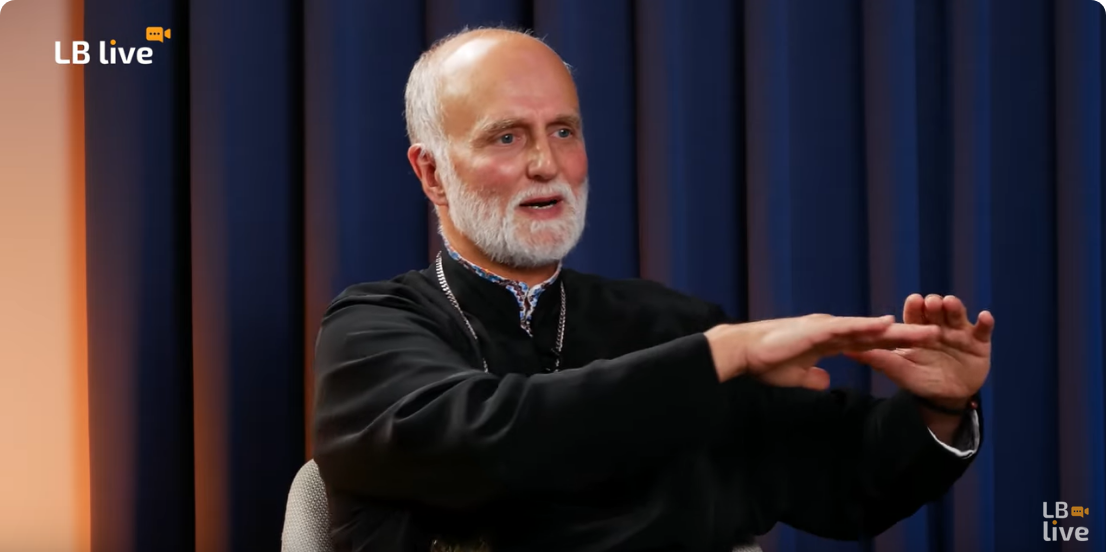
I remember how, at the end of the 1980s, a respected dissident told me: ‘The Church will play no role in society — that stage is over.’ But the Institute of Church History in Lviv, which was a small room, became the cornerstone of the Theological Academy, and then of the Ukrainian Catholic University. Science and religion seem incompatible, but this is a paradox. Physicists, mathematicians, and doctors confirm that there are things that cannot be fully explained by logic: life, illness, and mystery.
The Church has never denied that it is sinful. But I encourage critics of the Church to also look at themselves and be prepared to seek big answers to difficult questions, because without them we will not survive in these difficult times.
‘I suggested that the President of Ukraine make a separate appeal to the believers of the world, because there are so many of them.’
Returning to the topic we touched on at the beginning — religious diplomacy. You mentioned Catholics, their numbers in Congress, in the Supreme Court, and in the US government in general. Let's talk about the role and importance of different religious communities in America.
Their role in supporting Ukraine is extremely important. When Congress hesitated to allocate vital aid to Ukraine, the position of the Baptist speaker proved decisive.
Ukrainian and American Baptists joined forces to organise an educational campaign, one of the key elements of which was a visit to the US by a father from Odessa who had lost his daughter and wife.
Which American religious communities are currently our main allies, and how does their support affect Ukraine?
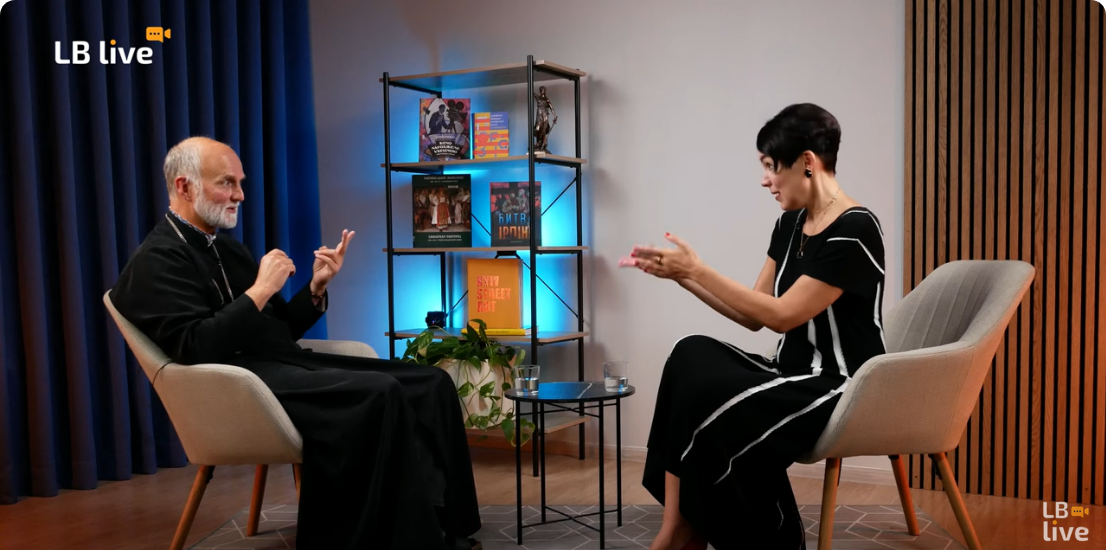
To understand this more fully, we need to provide a little more context. One thing must be clarified: Baptists worked with Baptists. Why? Because they had to work with them. For example, Catholics supported Ukraine: Catholic parliamentarians, members of the Ukrainian Greek Catholic Church — they did not need to be persuaded. There are not many Orthodox Christians, but they do exist — mostly Greeks and Greek Orthodox Christians who understand and support us.
The problem of polarisation in American society is also linked to the condescending attitude towards religious people in the US. In general, in the Western world — in the press, films, universities — a religious person often feels marginalised, and this is done very elegantly. I, in particular, had to experience this at Harvard.
Today, there is a reaction to this condescension, which manifests itself geographically — between the east and west coasts and the centre of the country. There is even a term, Fly over America, for the part of the United States that planes simply fly over because it is poor and backward, but at the same time produces products and resources.
This arrogance partly explains political elections, such as Trump's victory. Politics is often manipulative.
I co-authored a document for Patriarch Myroslav Ivan Lubachivskyy in 1994, which insisted that Greek Catholic priests and parishes should not support any candidate or party. Our priests are not princes of this world — this is an area where lay people should act.
Some time ago, President Zelenskyy visited the Ukrainian Catholic University and had a conversation with Father Bohdan Prakh. A week later, he offered him the position of Minister of Education, but Father Prakh refused because, according to canon law, a Catholic priest cannot hold political office.
There are exceptions, but the rule is clear and it works. Unlike the Orthodox world, where the norms are blurred, the Catholic Church has a code of canons for Rome and 23 Eastern Catholic churches, and everything is very clearly spelled out there.
Regarding religious diplomacy in America: Democrats have often neglected a large part of religious communities. President Biden, as a Catholic, went to church every Sunday, but conservative Protestant communities were often overlooked. When Trump came along, he engaged these neglected communities. And what do they say?
The war in Ukraine has been going on for two years, and the president (Zelenskyy — Ed.) has been saying something every day. But religious aspects have hardly been covered, except for Christmas and Easter. Although I suggested that there should be a separate appeal to the world's believers, because there are so many of them. And the impression was created, supported by propagandists, that the Ukrainian authorities were against religion. Russia worked on this very systematically. And that is why we now have a prayer breakfast. It should not be so opportunistic: ‘Oh, the Americans are praying, and we have to pray so that they will give us weapons.’
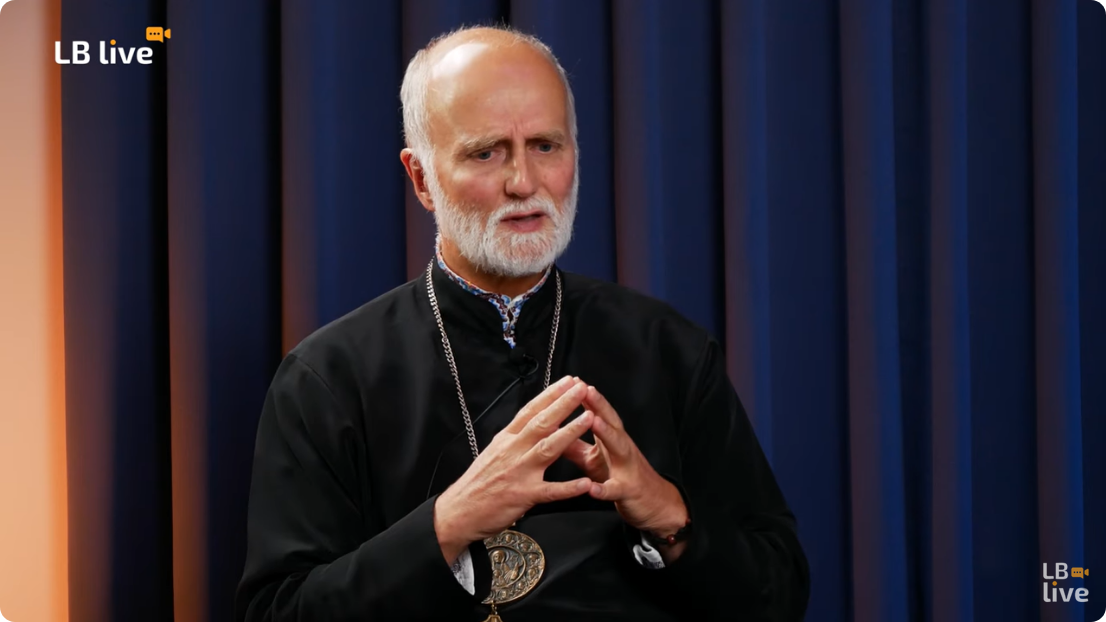
‘Most Americans believe that the US should provide more support to Ukraine.’
You mentioned Russians, and I cannot help but ask. When aid was being allocated to us, there was an active campaign against Ukraine, financed by Vadym Novynskyy and implemented by Robert Amsterdam. It claimed that religious rights were allegedly being violated in Ukraine and that persecution was taking place — and this narrative was actively promoted by the Russian Church and the Russian state.
Now Putin is talking about ‘protecting Russian speakers’ and demanding ‘the restoration of the rights of the Russian Church in Ukraine.’ The UOC (MP) publicly assures that it is not the Moscow Patriarchate, but it is precisely its ‘rights’ that Putin is demanding be restored.
It must be acknowledged that Novynskyy and Amsterdam's campaign was successful at the time. How effective are these narratives today?
Most Americans, including most Republicans, believe that the US should provide more support to Ukraine. The general opinion is that Putin is a war criminal who cannot be trusted. The narratives that come from there are imposed and false. This is the general perception Americans have when they think about Ukrainians. Although, of course, they don't think about Ukraine every minute. Therefore, we must constantly work on this.
I spend one week a month in Washington, one week in Philadelphia, and two weeks travelling. And I am constantly invited in a formal way: ‘Give a lecture at the university,’ ‘Meet with the bishops,’ ‘Come to our celebration and give a sermon about Ukraine.’ And we have to work on this.
Our church has established the Archangel Gabriel Institute in Washington. Gabriel is the herald. We are church diplomats: not in white gloves, concerned with protocol or whether we can eat a banana with a knife and fork; we try to witness to Christ with our own lives, joy and sincerity and show how Christ is suffering in Ukraine today.
There is a whole programme, which is now in its second year. This year, 33 people from all over the world are participating. They live together, pray, take courses at two universities on diplomacy and American history, attend seminars on communication, and study the institutions we need to work with in order to better understand them.
They organise a conference, a press conference, an exhibition and a fundraising event to learn how to engage in cultural diplomacy. We, with our modest efforts, try to bear witness to the truth.
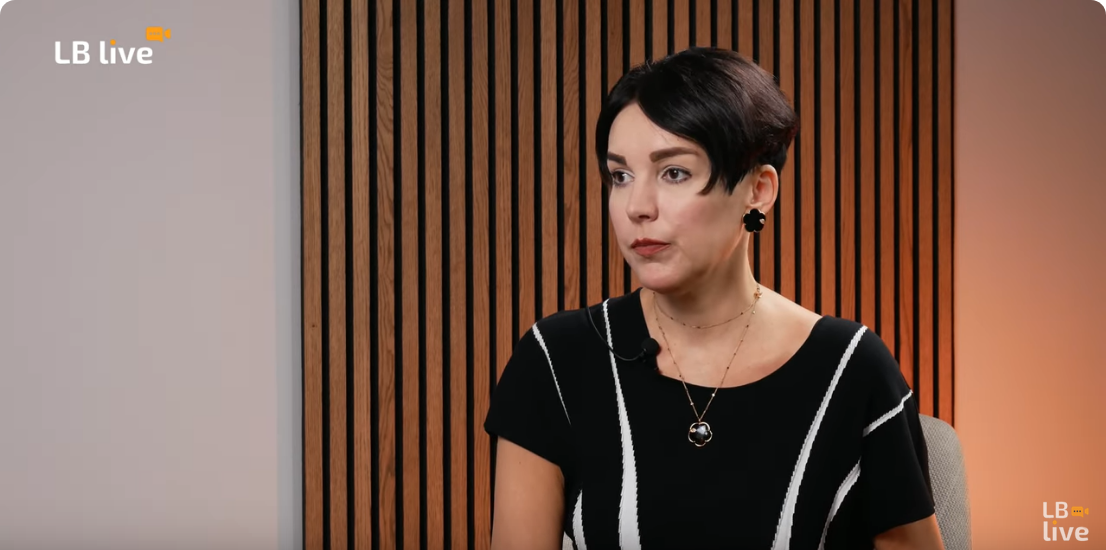
Did it have a global impact?
I think so. At least in Catholic circles, where we have open channels of communication, there is a clear understanding of the falsity of Putin's narratives and clarity that Ukrainians are defending truth, goodness, justice, democracy, freedom of religion, speech, political choice, and so on.
‘Pope Leo XIV clearly stands on the side of Ukraine’
Your Excellency, a question about the new pope's peacemaking efforts. How do you assess their possible impact on the processes in Ukraine? President Zelenskyy has already invited him, and there is talk of a possible visit, although there is no official confirmation yet.
The Pope was elected on Thursday evening. At the very moment when the first questions came from the nunciature, the question was asked: ‘What should the new Pope say on Sunday?’ Everything that His Beatitude Svyatoslav suggested was said — even with additional emphasis.
On Sunday, three days later, the newly elected pope's first call was to President Zelenskyy, the president of Ukraine. And on Wednesday, the first general audience was held with representatives of the Eastern Catholic Churches — and 80% of the hall was filled with Ukrainians. After all, our church is the largest among the Eastern Catholic churches, and there are indeed many Ukrainians in Rome and Italy.
The following Sunday, on the day of the pontificate's inauguration, President Zelenskyy became the first head of state to meet with the pope. It was a clear signal.
At that time, a proposal was made for the Vatican to act as a mediator, a kind of platform for negotiations. But Moscow's response was: ‘Ukraine and Russia are two Orthodox countries...’.
Therefore, we will not go to your ungodly Vatican. Awesome logic.
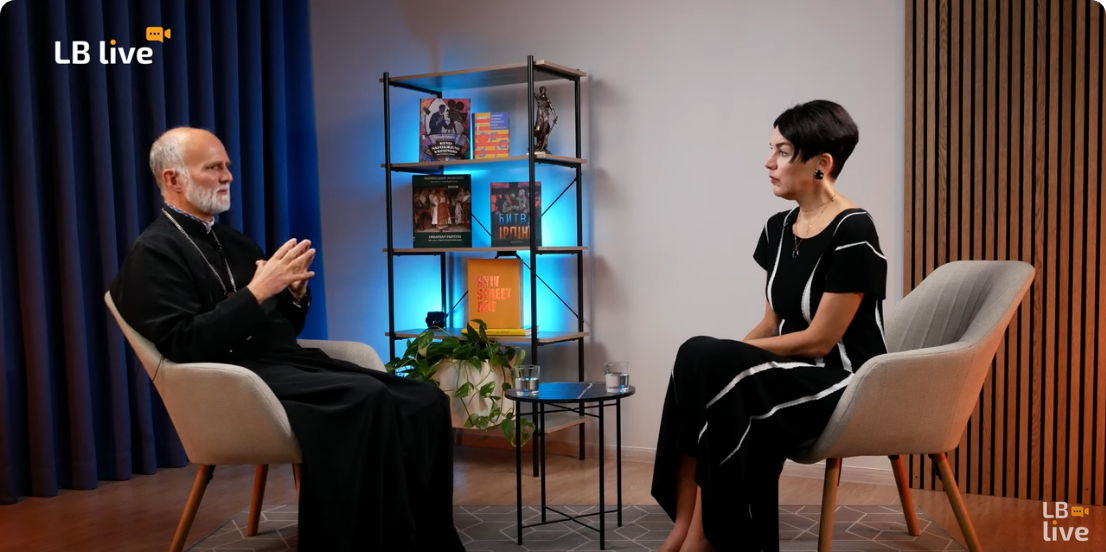
And the negotiations will actually take place in an Islamic country. This is an example of multi-layered tactical deception.
It is important for us to understand that the Church cannot set itself a goal, because the outcome is always beyond our control. God does not expect us to achieve ‘guaranteed success.’ He says, ‘Bear witness, do what is right, speak the truth.’
The Pope is the same: he declares that he is ready to promote peace. He does not know if it will be accepted, but he continues to repeat it.
And it is worth emphasising: no world leader has mentioned Ukraine as often as Pope Francis — more than 400 times.
Well, he mentioned it in very different ways, let's be honest. Take, for example, the story of the joint procession of a Ukrainian and a Russian woman on Easter 2022.
When, in the first year of the full-scale invasion, a Ukrainian and a Russian woman were placed together during the Way of the Cross in the Vatican, there was a lot of criticism. The Pope heard this criticism, drew his own conclusions, but listened. He even moved our meeting forward by an hour so that we would have two hours for a serious conversation.
Every Wednesday and Sunday, the Pope asked the world to pray for Ukraine. This was heard in Africa, Latin America, the Philippines, Indonesia — places where there are almost no Ukrainians. It was an invaluable signal of solidarity.
Personally, I thank God that I am a Greek Catholic, that I belong to this great community. After all, Greek Catholics have a special status in the Catholic Church — certain extended rights. And the fact that our Blessed Svyatoslav was able to speak sharply and directly with the Pope is also a great credit to Francis, who knew how to listen. Of course, the Pope did not always do what we wanted. But he heard us. That is already a great virtue.
So, should we expect a visit from the Pope?
I hope so. President Zelenskyy invited him. His Beatitude Svyatoslav did too. But there are no concrete signals yet. The Pope has not yet made key appointments; he is forming his team. This takes time.
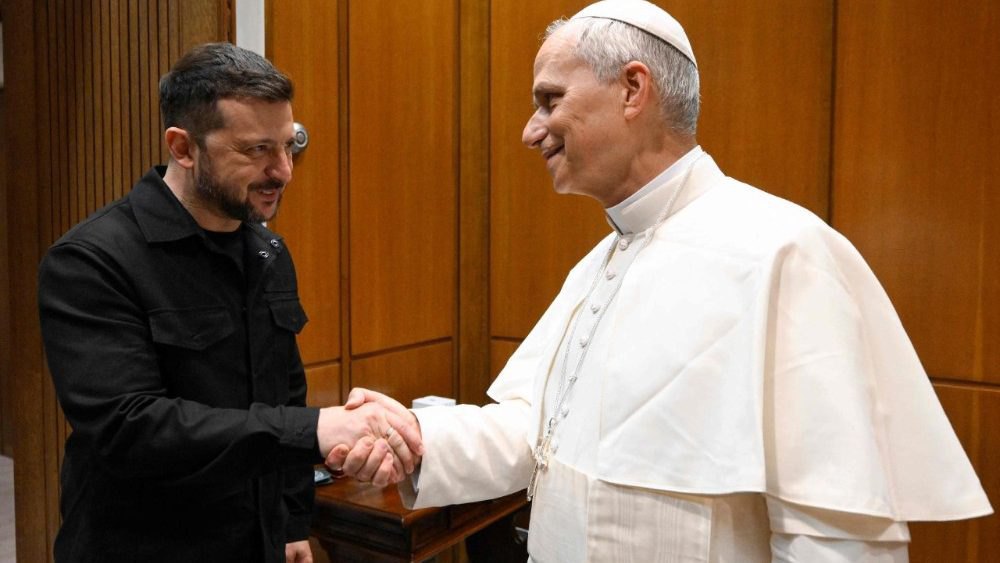
I feel that he is a profound person. I feel such closeness because there is only a five-year age difference between us. He grew up in America, in Chicago. I can imagine that environment very well. He studied at the University of Philadelphia, where I serve. I sometimes visit this university...
Today, this pope clearly stands on the side of Ukraine. I hope that prayer, informational support, and humanitarian aid — everything that is characteristic of the church — will have a real impact.
...Remember the collapse of the Soviet Union — until the very last moment, world leaders did not believe that it would happen. And I guarantee that the Russian empire will also collapse one day — if not now, then later. After all, all other European empires have already collapsed.
And what will happen to the Russian Orthodox Church then? The ROC is in fact an accomplice to crimes, in particular Patriarch Kirill and the church leadership. They do not particularly deny this. But the church itself is huge and has millions of followers outside Russia. What will happen to it after the collapse of the empire?
I quote Sergei Chapnin, a Russian, former editor of the Moscow Patriarchate magazine, who now works at Fordham University in New York, a Jesuit university with an Orthodox centre founded by Greeks: ‘Until the Russian empire collapses and the Russian Orthodox Church is brought to its knees, there will be no reforms. There will be no change, no authentic spiritual life.’
Today, only 1% of Russians regularly attend church. For comparison, in France, the figure is about 5%. That is five times more than in Russia. This is a disaster for the Russian people. Young people there are simply sent as cannon fodder and brainwashed. Someday, perhaps, generations will repent, as was the case with the Germans after World War II.
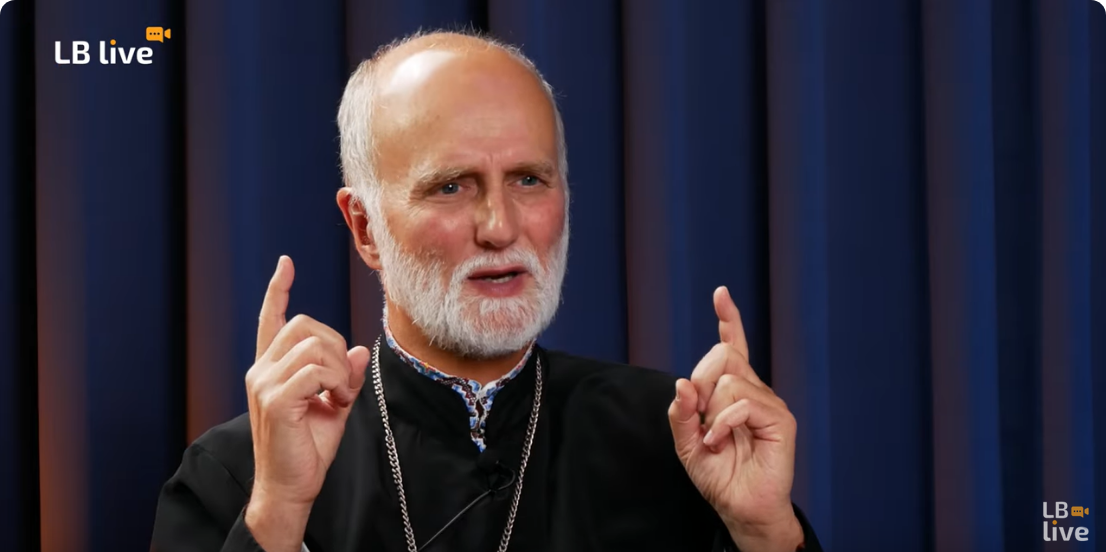
I'm not sure they will repent. Remember, Willy Brandt knelt before the monument to the victims of the Warsaw Ghetto only in 1975. Russia may need 125 years, if it happens at all.
It will happen someday, because the truth always comes out. Ask your younger colleagues: do they know who Vasyl Stus or Volodymyr Ivasyuk are? Yes. But do they know Volodymyr Shcherbytskyy? Often not. He was the first secretary of the Communist Party of Ukraine, a member of the Politburo, and effectively ruled Ukraine for 17 years. It was during his reign that Stus and Ivasyuk died.
Now we honour the martyrs who suffered under communism, while Shcherbytskyy's legacy has been consigned to the dustbin of history. And that is how it should be. I am proud of Ukrainians. Consciously or subconsciously, they live by this truth. And that is why they will win.








